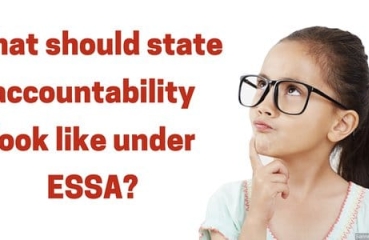The assessments edition
In this week's podcast, Mike Petrilli and Robert Pondiscio preview Fordham’s long-awaited assessments evaluation, analyze low-income families’ education-related tech purchases, and wave the red flag about TFA’s lurch to the Left. In the Research Minute, David Griffith examines how well the nation’s largest school districts promote parent choice and competition between schools.












